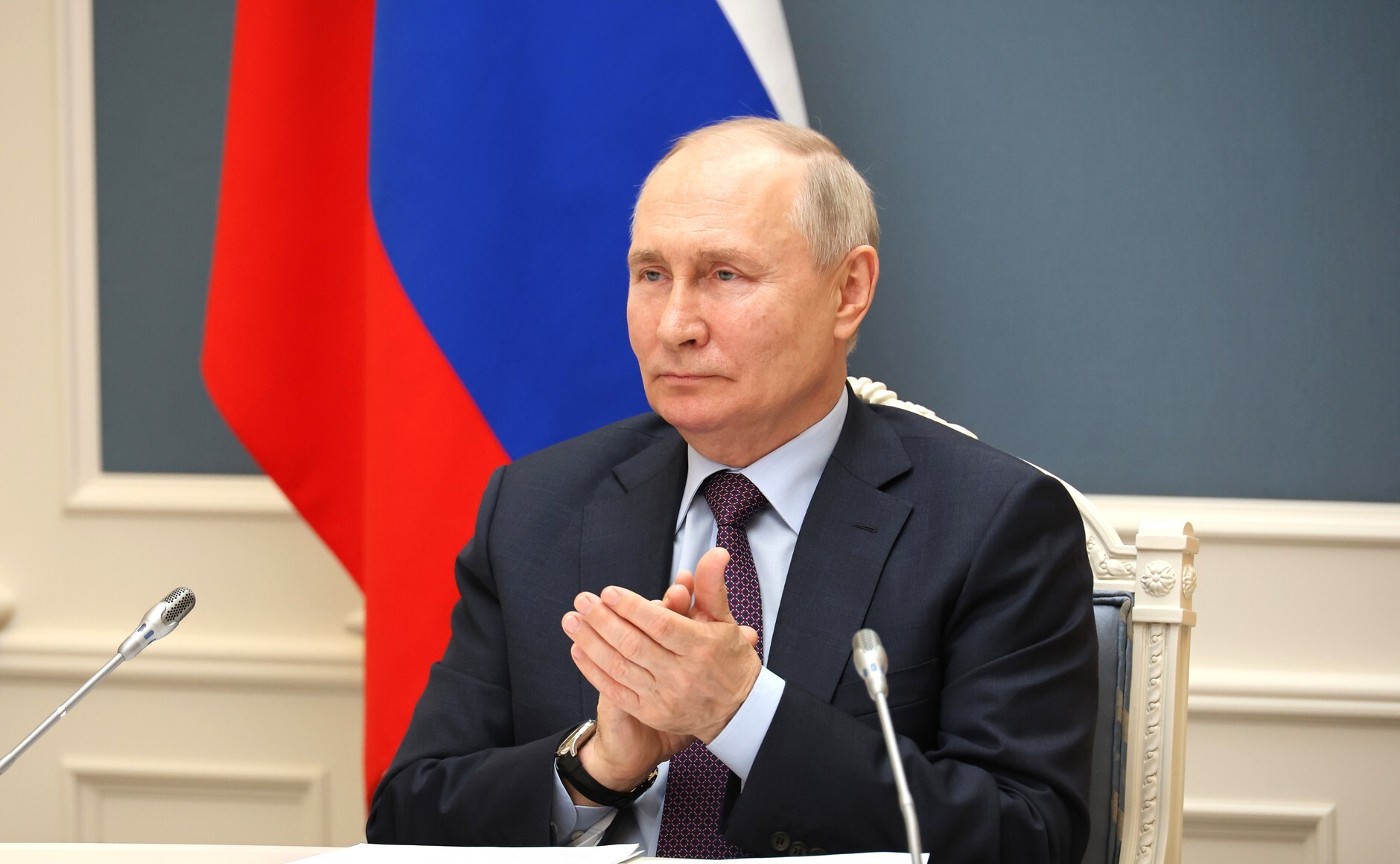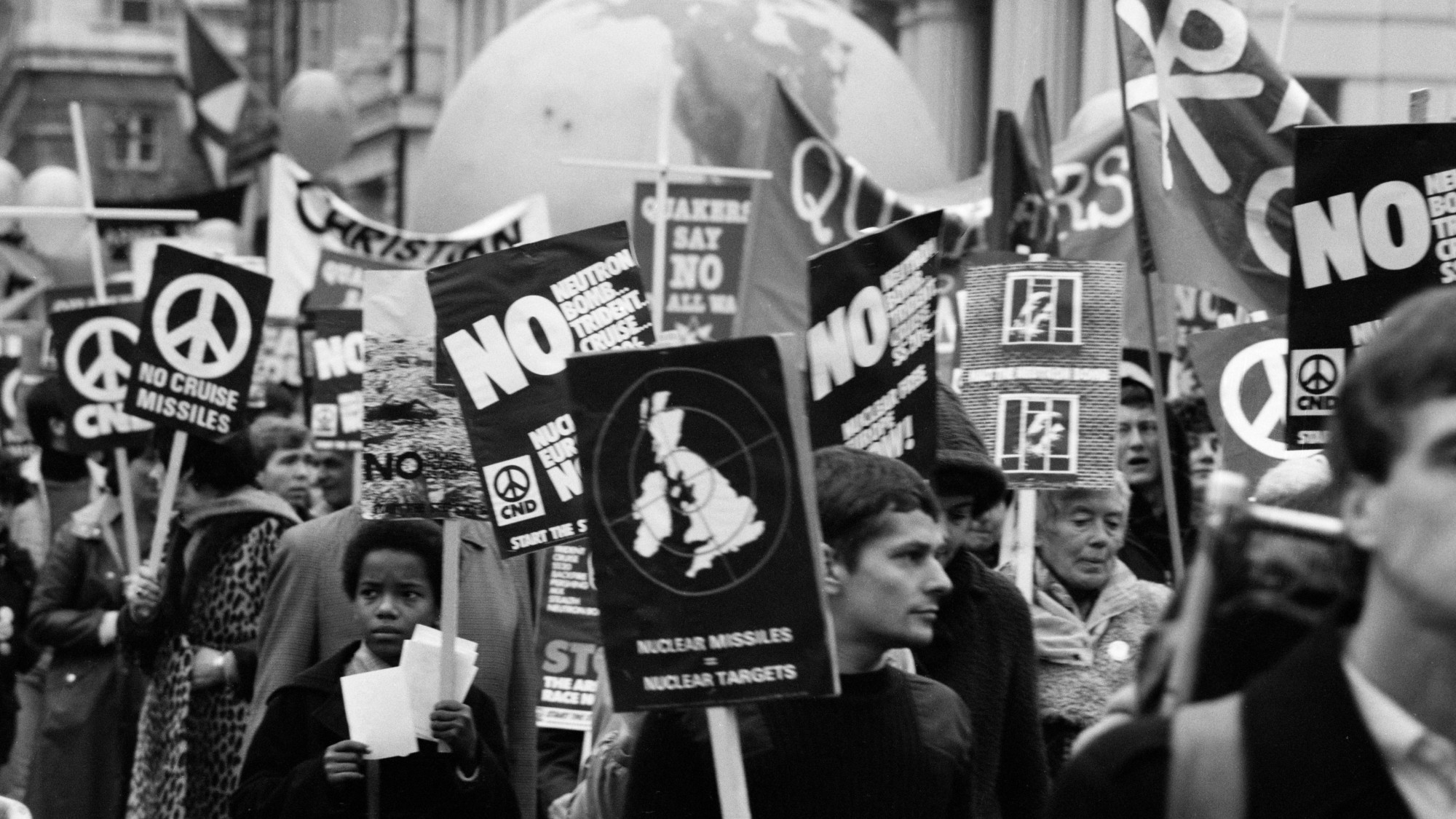Russia moves tactical nuclear weapons into Belarus blaming ‘Nato aggression’
Move has been met with widespread condemnation from the West

A free daily email with the biggest news stories of the day – and the best features from TheWeek.com
You are now subscribed
Your newsletter sign-up was successful
Moscow has started moving nuclear weapons into Belarusian territory, in response to what it called a “sharp escalation” on its western border.
Announcing a long-awaited weapons agreement in Minsk, Sergei Shoigu, the Russian defence minister, said it was the result of “extremely aggressive” Nato military activity.
“Today, together, we are confronting the collective West, which is actually waging an undeclared war against our countries,” Shoigu said.
The Week
Escape your echo chamber. Get the facts behind the news, plus analysis from multiple perspectives.

Sign up for The Week's Free Newsletters
From our morning news briefing to a weekly Good News Newsletter, get the best of The Week delivered directly to your inbox.
From our morning news briefing to a weekly Good News Newsletter, get the best of The Week delivered directly to your inbox.
Alexander Lukashenko, the president of Belarus, confirmed that the “transfer of nuclear munitions has begun”, admitting that it was “possible” the weapons had already arrived. He added that they were “non-strategic” nuclear weapons, rather than longer-range and higher-yield bombs.
The agreement allows Moscow to store warheads at a special facility in Belarus, noted DW. The deal also states that Russia will maintain control of the weapons, formalising an earlier agreement between the allies.
The move “has been met with widespread backlash by the West”, said The Moscow Times, with the European Union “threatening new sanctions on Belarus should Minsk agree to host Russian nuclear weapons”.
The United States has “strongly condemned” the deal, reported France 24. State Department spokesperson Matthew Miller described it as “the latest example of irresponsible behaviour that we have seen from Russia since its full-scale invasion of Ukraine over a year ago”. However, he added that Washington has not seen any indications that Russia is preparing to use a nuclear weapon.
A free daily email with the biggest news stories of the day – and the best features from TheWeek.com
In March, the prospect of Russia moving nuclear arms to Belarus was dismissed as a “bluff”. Putin’s “suggestion that Russia would start storing its bombs in Belarus may add up to less than it appears”, said The Guardian. “As usual with Putin, the world should read the fine print and check the context,” agreed CNN.
Chas Newkey-Burden has been part of The Week Digital team for more than a decade and a journalist for 25 years, starting out on the irreverent football weekly 90 Minutes, before moving to lifestyle magazines Loaded and Attitude. He was a columnist for The Big Issue and landed a world exclusive with David Beckham that became the weekly magazine’s bestselling issue. He now writes regularly for The Guardian, The Telegraph, The Independent, Metro, FourFourTwo and the i new site. He is also the author of a number of non-fiction books.
-
 The ‘ravenous’ demand for Cornish minerals
The ‘ravenous’ demand for Cornish mineralsUnder the Radar Growing need for critical minerals to power tech has intensified ‘appetite’ for lithium, which could be a ‘huge boon’ for local economy
-
 Why are election experts taking Trump’s midterm threats seriously?
Why are election experts taking Trump’s midterm threats seriously?IN THE SPOTLIGHT As the president muses about polling place deployments and a centralized electoral system aimed at one-party control, lawmakers are taking this administration at its word
-
 ‘Restaurateurs have become millionaires’
‘Restaurateurs have become millionaires’Instant Opinion Opinion, comment and editorials of the day
-
 New START: the final US-Russia nuclear treaty about to expire
New START: the final US-Russia nuclear treaty about to expireThe Explainer The last agreement between Washington and Moscow expires within weeks
-
 What would a UK deployment to Ukraine look like?
What would a UK deployment to Ukraine look like?Today's Big Question Security agreement commits British and French forces in event of ceasefire
-
 Would Europe defend Greenland from US aggression?
Would Europe defend Greenland from US aggression?Today’s Big Question ‘Mildness’ of EU pushback against Trump provocation ‘illustrates the bind Europe finds itself in’
-
 The history of US nuclear weapons on UK soil
The history of US nuclear weapons on UK soilThe Explainer Arrangement has led to protests and dangerous mishaps
-
 Is conscription the answer to Europe’s security woes?
Is conscription the answer to Europe’s security woes?Today's Big Question How best to boost troop numbers to deal with Russian threat is ‘prompting fierce and soul-searching debates’
-
 Trump peace deal: an offer Zelenskyy can’t refuse?
Trump peace deal: an offer Zelenskyy can’t refuse?Today’s Big Question ‘Unpalatable’ US plan may strengthen embattled Ukrainian president at home
-
 Vladimir Putin’s ‘nuclear tsunami’ missile
Vladimir Putin’s ‘nuclear tsunami’ missileThe Explainer Russian president has boasted that there is no way to intercept the new weapon
-
 The Baltic ‘bog belt’ plan to protect Europe from Russia
The Baltic ‘bog belt’ plan to protect Europe from RussiaUnder the Radar Reviving lost wetland on Nato’s eastern flank would fuse ‘two European priorities that increasingly compete for attention and funding: defence and climate’